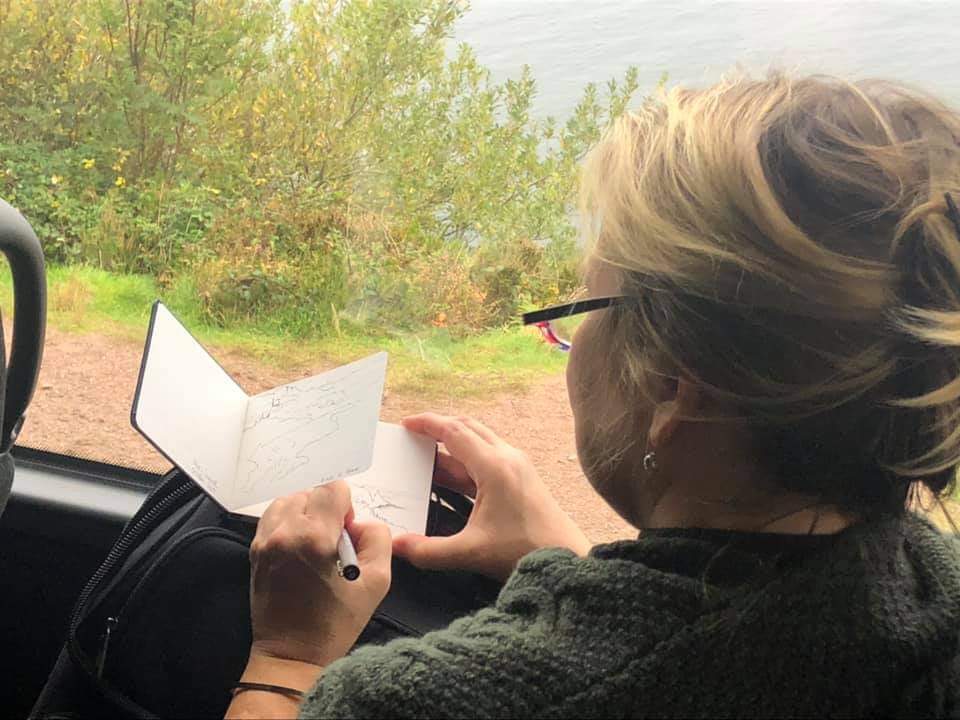|
Let yourself be inert, wait until the incomprehensible power…
that has broken you restores you a little, I say 'a little' because henceforth you will always keep something broken about you. —Marcel Proust As I write this, the United States has just marked a staggering milestone—over 500,000 people have died because of the COVID-19 pandemic. Five hundred thousand individual lives ended, each one leaving behind many more loved ones who grieve their loss. If we had known the enormity of our nation’s loss when we entered into lockdown efforts a year ago, would things have unfolded differently? Could we have set aside differences and instead pledged ourselves to care for our neighbors as ourselves? What if we had been called to commit ourselves anew to the idea of E pluribus unum, could we have risen to the occasion? It is too late, of course, to ask such questions. Half a million people have died; one hundred thousand lost since January. As I wrote that grim statistic, I found it unbelievable, so I stopped to check my facts. And yes, it’s real. On January 19th we marked 400,000 deaths from the pandemic, at a rate of one death from COVID-19 every 26 seconds. On February 22, the death toll reached 500,000, and although thankfully the rate has slowed, we continue to lose more lives each day. I began this note to you with a line from a letter Marcel Proust wrote to his friend, Georges de Lauris, after the death of his friend’s mother in 1907. The letter is a gift, written from the heart of one who has carried the weight of grief himself. “You will always keep something broken about you,” Proust shares gently. We know this to be true from our own experiences of loss. Grief reveals the fragileness of our existence, of the relationships we cherish, and all those we take for granted. Going forward our nation will carry with us something broken, too. The question before us now is what will we do with this brokenness? We may have missed the moment to change direction last year, but now that it is past, now that so many people must gather up the broken pieces of their lives, what might we do differently? As we hold these questions in our hearts, the church has entered into the season of Lent. We marked the season with the sign of the cross in ashes. In the weeks ahead we will walk alongside Jesus as he journeys to the cross, and we will hear his haunting invitation to take up our own cross and follow. The shadow of the cross looms over these days; the grim realities of death and human betrayal are never far from the story. Lent moves us to acknowledge the brokenness in our own lives and in the world around us. It’s only when we are honest with ourselves and one another that we may truly grasp the promise of Lent that those who want to save their lives, must lose them. It is in this paradox we discover the hope of the season. As Leonard Cohen so aptly put it, “There is a crack, a crack in everything, that’s how the light gets in.” The brokenness of our lives, of our nation, of the world holds within it the possibility of renewal. The choice is before us: God offers us life, abundant life, overflowing with grace and wonder. Can we receive that gift and change direction? Proust ends his touching letter this way, “Tell yourself this, too, for it is a kind of pleasure to know that you will never love less, that you will never be consoled, that you will constantly remember more and more." Let this be our prayer going forward, may we “constantly remember more and more.” May those memories be a blessing, a blessing which leads us to create a future shaped by compassion and to commit ourselves to the flourishing of our world. --Pastor Nancy
0 Comments
|
AuthorA native of Illinois, Rev. Nancy Gowler lived for 26 years in the Pacific Northwest. She joined the ministry of First Christian Church in Morehead, KY, in July of 2020. Archives
January 2023
Categories
All
|

 RSS Feed
RSS Feed
